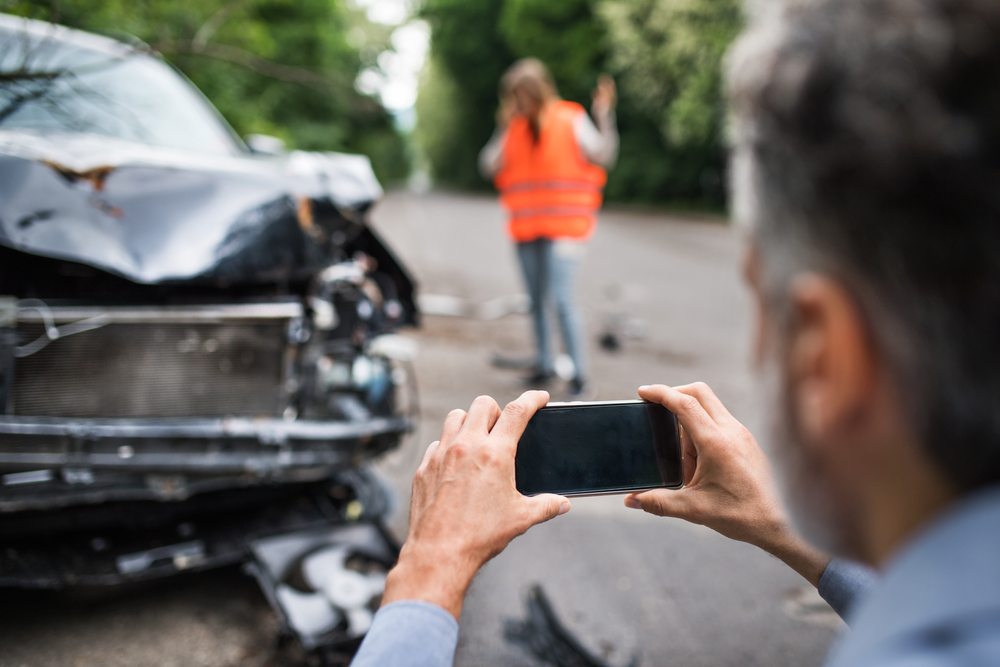Car Accident Evidence and the Burden of Proof
As a plaintiff, you will be required to prove your case by a preponderance of the evidence if your case goes to trial. Since you will have the burden of proof, you must present evidence proving your version of what happened. Gathering the right types of car accident evidence can help you present a strong case of liability. The stronger the evidence you present, the more likely it is that the insurance company will agree to fairly settle your claim. You will need to present evidence to prove what happened leading up to your accident, your injuries and their severity, and your lost wages and property damage. Let’s explore some of the most important types of car accident evidence . . .
1. Evidence from the Accident Scene
Gathering evidence at the accident scene can be helpful in proving your case and convincing an insurance company to settle your claim. No matter how serious or minor your accident and injuries initially appear to be, call the police and remain at the scene for an officer to respond. The responding officer will conduct a brief investigation at the scene and get the statements and names of any witnesses. He or she might also issue a citation to the at-fault driver. All of this information will be included in a police report. While police reports generally cannot be admitted into evidence, they can provide your attorney with a roadmap to use to begin the investigation. Evidence that the other driver was cited by the police can also be helpful in your negotiations with the insurance company.
In addition to getting a copy of the police report, you should also get as much information at the scene as you can. Get the other driver’s contact information and name. Ask for his or her driver’s license number and insurance information, and write down the vehicle’s plate numbers. Ask the driver if he or she owns the vehicle. If he or she is driving someone else’s car, ask who the registered owner is. You should also ask if the other driver was driving for his or her employer at the time of your crash. If so, get the employer’s name and contact information.
Get the names and contact information of anyone who witnessed what happened. Take photographs of the accident scene, the damage to both vehicles, and your injuries. Some of the things you should photograph at the scene include tire skid marks, nearby traffic control devices, debris, road conditions, and weather conditions.
2. Evidence of Your Damages
Gathering evidence of your economic damages is critical for your car accident claim. These include evidence of your property damage and your injuries. Keep records of any vehicle repairs and rental costs. Make sure to seek immediate medical attention following your crash, and follow all of your doctor’s recommended treatments. Ask for copies of your medical records for the treatment you have received, including diagnostic reports, imaging studies, doctor’s and nurse’s notes, and other relevant information. Keep copies of your medical bills.
Make sure to keep a journal and write down information about all of your appointments, including the names of the doctors who treated you and any copays you had to pay. Keep copies of your paystubs and W-2s to document any wage losses you suffered as a result of your accident and injuries.
Talk to the Law Offices of Bryan Musgrave
In addition to the above-listed types of evidence, your attorney might gather additional evidence to support your legal claim, such as the opinions of accident reconstruction experts and information from the defendant and other witnesses through interrogatories and depositions. Gathering the right types of evidence can help you build a stronger case and maximize the amount of your compensation.
To learn more, contact the Law Offices of Bryan Musgrave today for a free case evaluation by calling 417-322-2222 (Springfield) or 417-624-4258 (Joplin) or sending us a message online.

